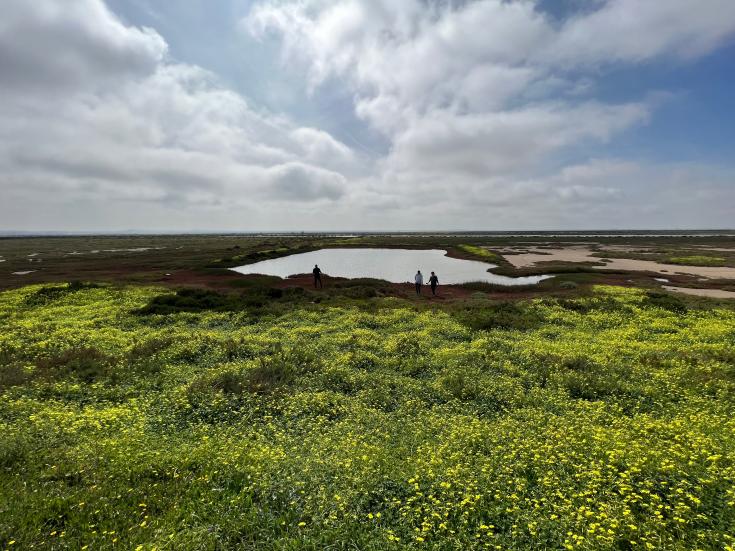Research inputs and video report on the study in Spain
Andalusian partner has launched a study to estimate the current carbon stocks in the banks of the Guadalete River, within the Cádiz Bay Natural Park, where a degraded salt marsh is being restored. This is the area where the blue carbon pilot project, presented as a good practice in the NACAO project will be implemented.
The study is carried out by the University of Cádiz, a key stakeholder in the NACAO project and will serve to establish the baseline scenario for the certification of the carbon credits for offsetting emissions through the Andalusian Blue Carbon Standard.
Salt marshes are areas of great ecological importance, providing essential ecosystem functions and services. However, during the last century, in most areas of the world, including Andalusia, large areas of salt marshes have been reclaimed for crops, causing loss and degradation of vegetation, salinisation and erosion of soils, increase in methane production and oxidation of the carbon stored in the sediment.
To provide information on the state of the saltmarsh and explain some of the details of the work, such as the methodology used, the types of carbon reservoirs in the area, the selection of sampling points, etc., this video report was produced by the University of Cádiz during the preparation of the study.
